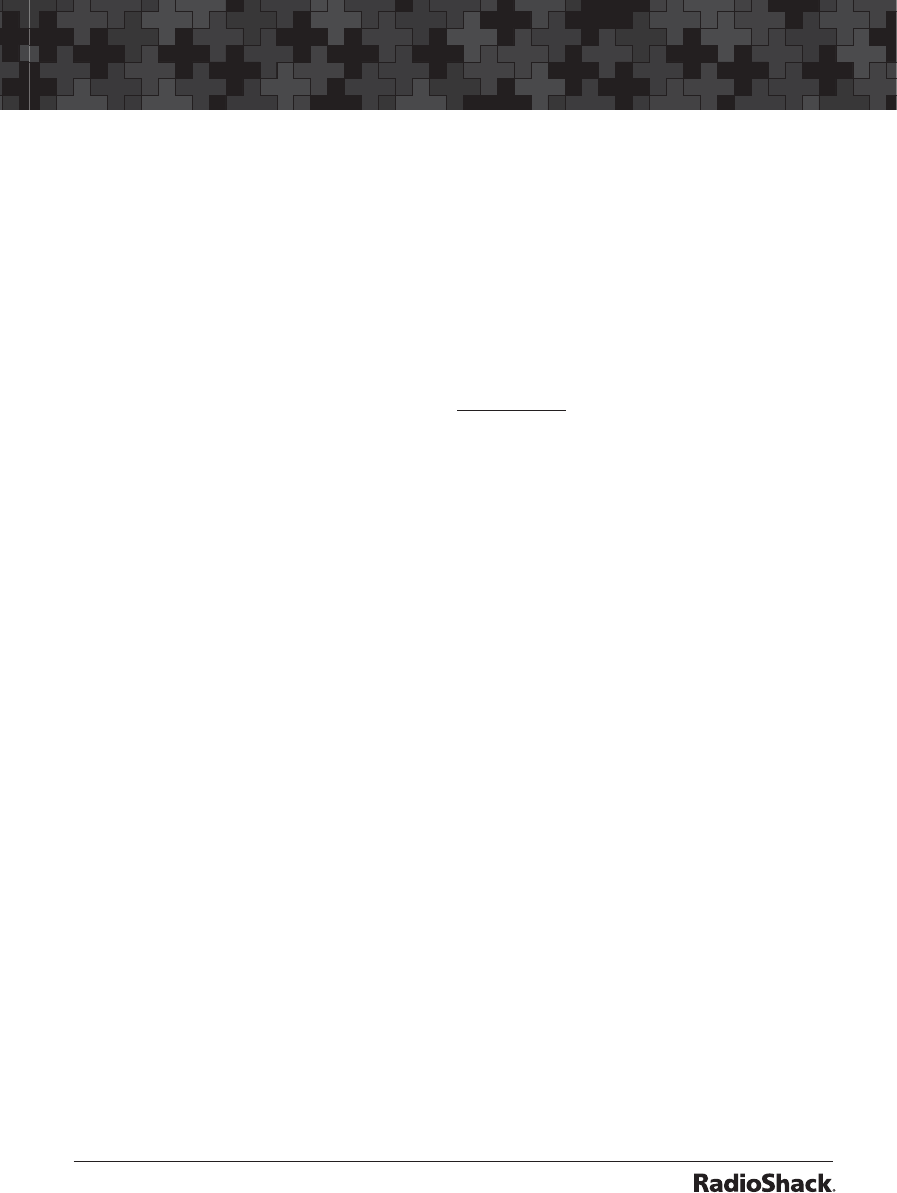
15
Additional Information
RF Emissions
WARNING! The Federal Communications Commission has adopted a safety
standard for human exposure to radio frequency electromagnetic energy
emitted by FCC regulated transmitters. It is up to the user to properly operate
this radio transmitter to ensure safe operation. Please adhere to the following:
Never allow children to operate the radio without adult supervision and the
knowledge of these guidelines. Avoid touching the antenna when transmitting.
Do not use the radio with a damaged antenna. Please contact your local
RadioShack store for a suitable replacement. Use only the supplied accessories
to comply with FCC RF exposure requirements. For more information about RF
exposure, please visit the FCC web site at www.fcc.gov.
The Federal Communications Commission (FCC) does not require you to have
a license to operate this CB. However, the FCC does require that you read and
know Part 95 of FCC Rules. These rules apply to the operation of a Class D CB.
We have provided a copy of these regulations with your CB.
Do not open your CB to make any internal adjustments. Any internal
adjustments can be made only by an authorized service technician.
Unauthorized internal adjustments and/or modifications can lead to illegal
operation as defined by Part 95 of FCC rules. Such illegal operation can lead to
very serious consequences.
Your CB might cause TV or radio interference even when it is operating
properly. To determine whether your CB is causing the interference, turn off
your CB. If the interference goes away, your CB is causing it. Try to eliminate the
interference by either moving your CB away from the receiver or contacting your
local RadioShack store for help. If you cannot eliminate the interference, the
FCC requires that you stop using your CB.
If you cannot eliminate the interference, contact your local RadioShack store for
help.
This device complies with Part 15 of the FCC Rules. Operation is subject to the
following two conditions: (1) this device may not cause harmful interference, and
(2) this device must accept any interference received, including interference that
may cause undesired operation.


















